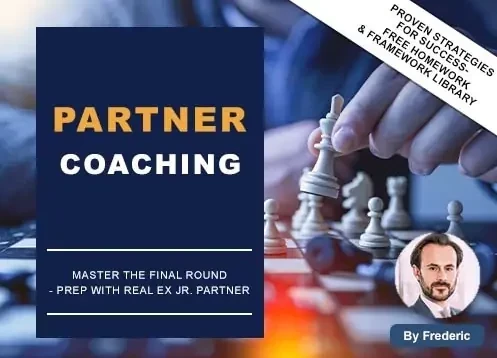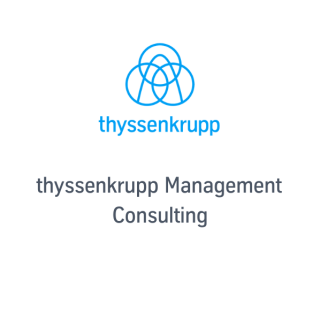I've done maybe 10-15 live peer cases, done lots of online reading, drills on rocketblocks, watched crafting cases, but still I find that when I do live case practice I really struggle with recalling suitable buckets or even putting ideas into my buckets. I can usually get the overarching gist of the case (ie client, competitor, financials etc) but I really struggle to add “colour” or volume to my frameworks/brainstorms, and they usually end up being quite sparse. Any thoughts/advice?
Struggling with recall in framework and brainstorm structuring


Hey! I completely understand your concern, and it's not uncommon for aspiring consultants to face this challenge when preparing for case interviews. Building a robust framework and generating insightful ideas during a live case practice can be daunting. Here are some thoughts and advice to help you improve your performance:
Learn from Mistakes: Don't be discouraged by sparse frameworks or initial difficulties. Treat each practice session as a learning opportunity. After each case, analyze what went well and what could have been done better. Focus on improving one aspect at a time.
Bucketing Techniques: To improve your ability to recall suitable buckets, create a list of common frameworks for different case types (e.g., profitability, market entry, pricing). Memorize these frameworks and practice applying them to various cases. This can serve as a mental checklist during live interviews.
Framework Customization: While having standard frameworks is helpful, remember that not all cases fit neatly into predefined structures. Learn to customize your frameworks based on the specific case information. Be flexible in adapting your approach to the unique aspects of each case.
Deepen Your Industry Knowledge: The "color" and depth you add to your frameworks often come from your industry-specific insights. Focus on developing a strong understanding of industries relevant to consulting, such as healthcare, retail, or technology. This will enable you to ask more insightful questions and generate relevant ideas.
Brainstorming Techniques: Practice brainstorming regularly, even outside of case interviews. Read business news, analyze real-world problems, and come up with your own solutions. This will sharpen your creative thinking and idea-generation skills.
Visualization: Try to visualize the problem from different angles, such as through the eyes of a customer journey or from various stakeholders' perspectives. This can help you uncover new dimensions and insights to enrich your frameworks.
Feedback and Coaching: Seek feedback from experienced consultants or peers who are skilled in case interviews. They can provide valuable insights and point out areas for improvement. Consider investing in professional coaching if it's within your means.
Mock Interviews: Engage in mock interviews with a variety of partners or interviewers. Each person may have a different style, and practicing with different people will expose you to a broader range of case scenarios and feedback.
If you would like more personalized advice or have specific questions, please feel free to contact me directly through direct messaging. I'd be happy to provide further guidance.
Warm regards, Frederic

Hi there,
I would be happy to share my thoughts on your question:
- First of all, while online resources like RocketBlocks and Crafting Cases can offer general guidance, unfortunately, they aren't great for understanding how to develop case-specific initial structures.
- Moreover, instead of trying to recall specific buckets or categories, I would advise you to focus on analyzing the case study question in an unbiased way. Understand the problem at hand, the objectives, and think about the different analyses and activities that can get you one step closer to the answer. This will help in making your structures more tailored and relevant.
- Lastly, practice is key. The more cases you do, the better you will get at structuring your thoughts. But it's essential to take feedback after each case study and actively work on areas of improvement.
If you would like a more detailed discussion on how to best structure any case study, please don't hesitate to contact me directly.
Best,
Hagen

Hi,
I think what you are describing is a common challenge faced by many candidates.
Your situation I think is driven by a few challenges
- Not yet fully understanding the most optimal way to structure problems
- Not exposed enough to thinking on the spot (under pressure)
- Probably not yet fully utilizing your wealth of experience and knowledge
More practice will help, especially after a while when you start to recognize patterns and/or parallels and analogies.
However the reality is that there is no one formula or single piece of advice that will help you to get better - what you really need is to be able to get quality feedback on what you are not doing well, in addition to what could be better. Then this will let you reflect and absorb and hopefully learn the proper way of thinking.

Hey,
Firstly, 10-15 is not nearly enough. You should aim at doing ~100 quality cases with experienced partners on all types of functions and industries.
Secondly, in my opinion, the key to good structuring is knowing a few high-level approaches and combining them properly with your industrial and functional knowledge to create deep multi-level structures.
In order to learn how to do it efficiently and effectively, I suggest you get coaching.
Regards,
Nick

It's great that you've been actively preparing for case interviews and have a strong grasp of the overarching structure of cases. To enhance your ability to recall suitable buckets and add depth to your frameworks and brainstorms, consider these strategies:
- Practice, Practice, Practice: The more live cases you practice, the more comfortable you'll become with structuring your thoughts on the fly. Consider doing more live case practice sessions with peers or mentors. Focus on applying the frameworks you've learned.
- Structure Your Thoughts: Develop a structured approach to tackling different types of cases. For instance, you can create a mental checklist of common buckets for client, competitor, financials, and other areas. This can serve as a quick reference during live cases.
- Analogous Cases: When practicing, try to relate the current case to similar cases you've encountered or read about. This can help you recall suitable buckets or frameworks. Analogous thinking is a valuable skill in consulting.
- Mind Mapping: Before diving into a framework or brainstorming, take a moment to create a simple mind map on paper. Write down the main areas you want to explore and then expand on each. This visual aid can help you organize your thoughts and ensure you don't miss any key points.
- Deep Research: When preparing for cases, research specific industries or companies to have a reservoir of industry-specific knowledge. This will help you add depth to your frameworks and impress interviewers with your industry expertise.
- Feedback and Review: After each practice session, seek feedback from your peers or mentors. They can provide insights into where you can improve your frameworks and brainstorming techniques. Regularly review your performance and identify areas for enhancement.
- Stay Calm and Structured: Nervousness can lead to blanking out during interviews. Practice relaxation techniques to stay calm and focused. Remember, it's okay to take a moment to gather your thoughts before responding.
- Expand Your Toolkit: Consider learning new frameworks or brainstorming techniques that can be applied to different cases. Sometimes, a fresh perspective can help you generate more ideas.
- Real-World Application: Apply structured thinking to real-world situations. Whenever you encounter a business problem or opportunity in your daily life, practice breaking it down into key components and brainstorming potential solutions.
Remember that case interviewing is a skill that improves with practice and experience. Be patient with yourself, and continue refining your approach. Over time, you'll become more comfortable and adept at tackling cases with depth and creativity.

Hi there,
Frameworking is the hardest part of casing. The honest answer is that 90% of people don't do it right. And 90% of materials out there are super misleading.
Try to get away from memorization and learnign the what of frameworks. Rather, learn the problem-solving approach (the why and how).
Here's a lesson you can learn from (have to request access): https://drive.google.com/file/d/1Lb9CH98VH6YSkIPhXEQn6XJYlx68FNG0/view?usp=drive_link
One problem I see with you is: You are blindly listing out client/competitor/financials. However, you don't know why they exist. You don't know what the point/goal of each bucket is. Try to avoid being so generic! In you fix your high level buckets, the ideas below will come.
Here's some more reading to help: https://www.preplounge.com/en/articles/how-to-shift-your-mindset-to-ace-the-case
https://www.preplounge.com/en/articles/dos-and-donts-in-a-case-interview
https://www.preplounge.com/en/articles/candidate-led-cases-what-to-expect-and-example-cases
==========FRAMEWORKING=========================
Frameworking/Case Driving
First, remember that casing isn't just about memorizing every step, industry, case type, etc. It's about learning how to be adaptable and nimble. So, always be prepared for the unexpected.
1. All cases are structured, wheather you realise the structure or not. It's your job to keep it organised and keep it to a good flow/framework!
2. Figure out what data/information you need and ask for it: The interviewer won't just give it to you (just like your client won't know what you need from them). Use your framework to dive into areas! If your interviewer insists they don't have data in that area (after you've gone specific), then go into another area of your framework (or expand out).
3.In this case try and keep a mini framework in your head. You can write as you talk as well.
When you say "not those kinds of questions an interview-led style would ask" this shows me that you're limited in your preparation....don't come in expecting a certain format/style! Be ready to drive your own case if needed. Think if you were on a real life project and asked to lead it...this is what they need you to demonstrate!
Frameworks
If there's anything to remember in this process, is that cases don't exist just because. They have come about because of a real need to simulate the world you will be in when you are hopefully hired. As such, remember that they are a simplified version of what we do, and they test you in those areas.
As such, remember that a framework is a guide, not a mandate. In the real-world, we do not go into a client and say "right, we have a framework that says we need to look at x, y, and z and that's exactly what we're going to do". Rather, we come in with a view, a hypothesis, a plan of attack. The moment this view is created, it's wrong! Same with your framework. The point is that it gives us and you a starting point. We can say "right, part 1 of framework is around this. Let's dig around and see if it helps us get to the answer". If it does, great, we go further (but specific elements of it will certainly be wrong). If it doesn't, we move on.
So, in summary, learn your frameworks, use the ones you like, add/remove to them if the specific case calls for it, and always be prepared to be wrong. Focus rather on having a view, refering back to the initial view to see what is still there and where you need to dive into next to solve the problem.
HOW to learn/think in the right way.
- Frame based on the objective: Identify exactly what the objective is, then think about the areas you would look at to solve the problem.
- Think of buckets as "building blocks" - understand the 10-odd buckets that exist out them (Market, Product, Company, How to Enter, etc.). Learn these, and what their used for, then think of them as ingredients that you then pluck out and tailor to your framework.
- Practice with Introduction, then End, then framework:
- Practice a number of cases where you hear just the introduction, then build a framework.
- THEN, look at the end of the case and what conclusion was made, and re-do your framework.
- THEN, look at what framework(s) was/were proposed as the answer.
- Read the Economist religiously: The Economist is an excellent, longer-term base knowledge/thinking resource for you. I've found that reading the Economist over the years has been instrumental in helping to shape my thinking and holistically understand problems, whether political, economic, social, or anything in between. Feel free to throw in the Financial Times or BCG Insights into the mix!

Hi there!
Based on your description, it sounds like you haven't been practicing the right way.
You shouldn't be trying to ‘recall buckets'. You should basically use your structuring skills to figure out how to break down the problem into component parts, and how to calibrate each of these parts specifically to the prompt that was given in order to provide a value adding answer.
If structuring drills haven't helped, try to get feedback from people with experience - be they coaches or senior consultants from within your network.
Sharing with you also a guide here on how to best approach structuring:
Best,
Cristian
———————————————
Practicing for interviews? Check out my latest case based on a first-round MBB interview >>> SoyTechnologies

Hi there,
You need to practice and get feedback on how to improve that part. Books and online resources can help up to certain point. Working with a coach or a current consultant would definitely help here.
Best,
Alberto










